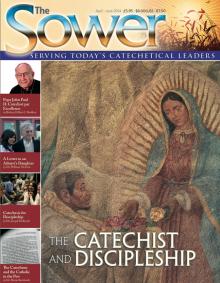This second part of Wiliam Newton's article was never published in a printed issue of The Sower, as the magazine went ouf of print before the last installment was completed. However, the editor of The Catechetical Review adds it to this issue online for the benefit of subscribers interested in the conclusion of Dr. Newton's commentary on Richard Dawkins's The God Delusion.
Dearest Patience,
In the recent letter I sent to you concerning some of the arguments put forward by Richard Dawkins concerning the existence of God, I promised I would write to you again to address what he says about religion and morality in his book The God Delusion.[i] So as a friend who strives to keep his promises…here we go!
The first problem that Dawkins comes up against is that religion is still extremely widespread as well as ever-present throughout human history. This presents a problem for Dawkins, because it means he has to show how something so utterly wrongheaded and insidious is, nonetheless, so enduring and prevalent.
Evolution and Natural Selection
Given Dawkins’s intellectual commitments, the only acceptable explanation is going to have to conform to the theory of evolution and natural selection. This is problematic because natural selection is the very hardest of task-masters: it rewards only what is useful and harshly punishes everything that stands in the way of progress. Yet, as Dawkins has repeatedly asserted throughout The God Delusion, religion is the most negative of phenomena. It perpetuates ignorance, impedes scientific progress, and cripples individuals with feelings of guilt (p.279-308). In what conceivable sense could it, therefore, be useful?
Dawkins’s main argument is that religion is not directly useful but that it is a side effect of another useful human trait (p.174). This trait turns out to be the unquestioning acceptance by inferiors of what their superiors tell them. For example: because Billy believes the elders when they tell him that deadly nightshade is poisonous this increases Billy’s chances of survival (since he doesn’t eat it). However, little Johnny (genetically more inclined to disbelief/disobedience) does eat it and he dies. Accordingly, Johnny (and his kind) has no progeny, while Billy (and his kind) does. The upshot is that a genetic propensity to believe what the elders say (including the religious nonsense they spout) dominates.
The rest of this online article is available for current Guild members.
This article is from The Sower and may be copied for catechetical purposes only. It may not be reprinted in another published work without the permission of Maryvale Institute. Contact [email protected]

















